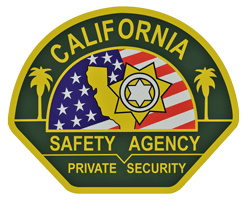Security cameras and video surveillance are often the first choice of property managers when they are trying to create a safer environment for their tenants and homeowners but here’s the flaw in that theory. Security cameras are not designed to deter crime. They are meant to record whatever happens during a set period of time so that if a crime did occur, there may be evidence of it. Even then, it can be difficult to build a solid criminal case from grainy black and white recordings that may not make identifying the suspect possible. A video surveillance system can’t take the place of patrol security services.
Any number of other things can also inhibit the recording of a good surveillance video. Bad weather, the overgrowth of trees and shrubbery, poor lighting, damage to the camera itself, and someone redirecting the focus of the camera are all factors. In short, security cameras alone are not the answer to giving your homeowners and tenants the extra security they are looking for.
While it can be argued that surveillance cameras do provide some kind of deterrent for some criminals, they may not for others if there’s no reason to believe that there will be any consequences of their actions. In other words, if no one is watching the surveillance feed and alerting security guards to respond to potential crimes and safety hazards, what good has it really done? It has become reactive rather than proactive.
Utilizing the onsite patrol services of the California Safety Agency in addition to video surveillance is the answer. Operating in Riverside, San Diego, Los Angeles, San Bernadino, and Orange Counties, preventing crime is a matter of being present in the first place.
In addition to preventing and deterring crime, these are some of the other things that security guards from the CSA can do for your apartment complex, gated community, or homeowners’ association:
1. Managing access through the use of controlled gates and logging guests –criminals will think twice when they are required to show their faces and possibly their IDs to access the area.
2. Physically patrol the parking lots and other common areas of the property – security guards can go where cameras can’t. They can see around corners and shine flashlights into dark areas like unlit shrubbery and trash containment areas.
3. Respond to emergency situations –the security guards of the CSA are trained to respond to crimes in progress as well as medical emergencies.
4. Work with property managers and law enforcement –daily reports and guest logs can help to identify problems and the CSA will call for assistance from law enforcement officers if they should encounter something beyond their scope of control.
State of the art technology is effective as long as the human element is not eliminated from it. The key to making your technology effective is to pair it with the patrol security services provided by the California Safety Agency. Contact us today for a consultation or to receive more information on our apartment and HOA patrol security service.

